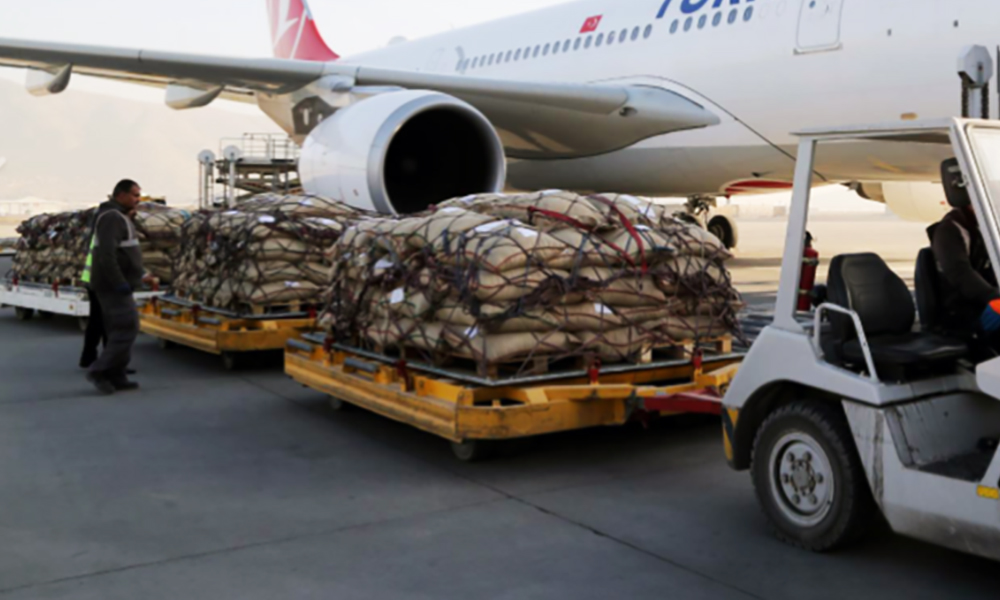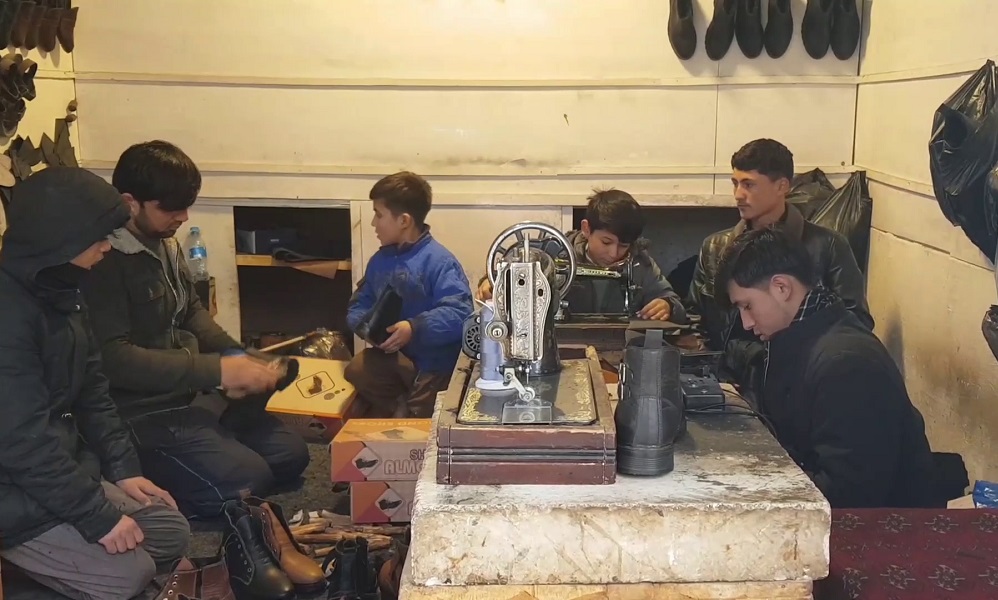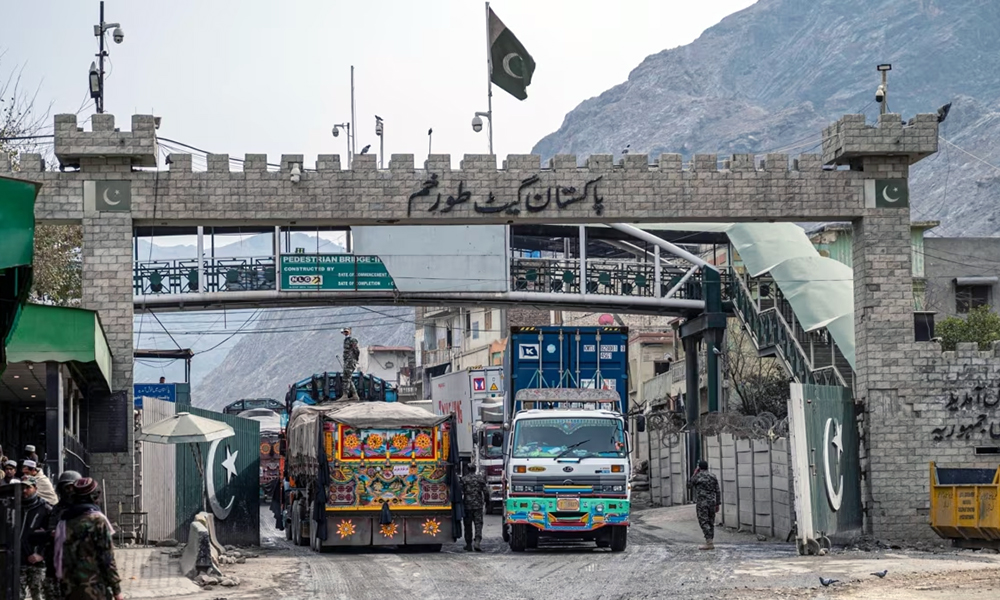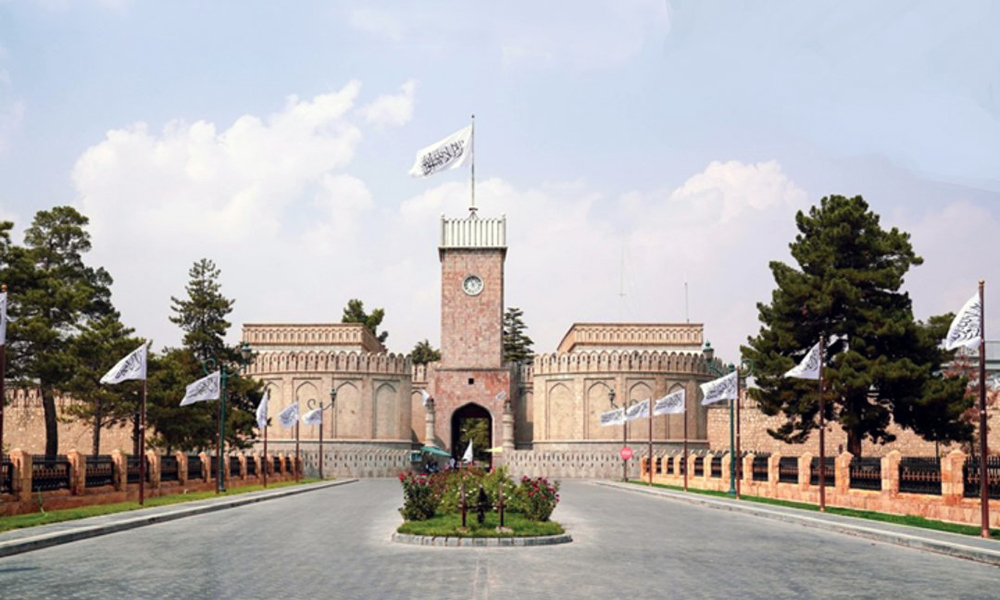Business
History in the making as 18 tons of pine nuts to be shipped overland to Italy

The Ministry of Industry and Trade said Thursday that a local company was preparing to export 18 tons of pine nuts to Italy overland.
According to ministry officials, the private company meets international standards and will dispatch its consignment within the next few days.
Officials also said in the first three months of this year, $19 million worth of pine nuts was exported and that there is a growing demand for the local produce.
It is estimated that Afghanistan harvests around 30,000 tons of pine nuts every year.
However, this Italian-bound consignment will for the first time be shipped overland via Turkey.
"This is a new export by land, which will be exported from Afghanistan to Turkey first, and then to Italy, and now we have the capacity to prepare our products according to the standards of European markets,” said Abdulsalam Akhundzada Jawad, the spokesman of the Ministry of Industry and Trade.
In the past, pine nut distributors have complained about the export process as the produce was first sent to Pakistan and from there sold on to international buyers.
The Chamber of Industries and Mines says that 30,000 tons of pine nut oil is produced annually in the country and is exported to China, Saudi Arabia, United Arab Emirates, India and Pakistan by air and land.
"We consider it important to export Afghan black pine nuts to Italy, and since there is a high export capacity in Afghanistan, the Ministry of Industry and Trade should provide the conditions for export,” said Mohammad Karim Azimi, executive director of the Kabul Chamber of Industries and Mines.
Economic experts say that if the Ministry of Industry and Trade solves the transit problems faced by exporters, Afghanistan will be able to substantially increase sales of dry and fresh fruits to international markets.
"Exporting black pine nuts to European markets is very important. Besides black pine nuts, we have other very important trade and export items in the country, which should be provided for export, which is considered very important for the Afghan economy,” said Taj Mohammad Tala, an economic analyst.
Following the collapse of the former government, air cargo corridors used for exporting fresh produce were stopped. However, business owners are hopeful that newly launched overland trade corridors will now fill the gap and open up even wider markets.
Business
Shoemaking industry in Takhar province facing stagnation

A number of shoemakers in northern Takhar province say that while their handmade shoes are of better quality than imported shoes, but still sales are down.
According to them, there were more than 20 shoe-making shops in the past, but now some have been closed due to the decline in sales.
The shoemakers make most of their shoes from leather. A number of industrialists say that this industry is now facing stagnation.
Abdul Raqib, a shoemaking factor owner, said: “The government should support us. Currently, we import soles. It can be made with good quality in Afghanistan, and we could even compete against Turkish shoes.”
Meraj, another shoemaking factory owner, said: “Shoe sales were higher in the republic era. There were military shoes. Sales have declined now, but we still thank Allah.”
Shoemakers make these shoes with basic tools and by hand, with 5 to 8 people working in each shop.
Javed, a shoemaker, said: “Our sales are not so good. We can make any type of shoe or slipper. We want the government to support us.”
A number of Takhar residents say that domestically produced shoes are of high quality and with lower price compared to imported shoes, so people prefer domestic products to foreign products.
Mir Ata, a resident of Takhar, said: “We are very happy about domestic shoes. People should buy it. They are of good quality.”
However, the officials of Takhar Industry and Commerce Department say that they are committed to support the industrialists.
Abdul Rahman Ghaznawi, provincial director of industry and commerce, said: “People prefer domestic shoes and slippers. Takhar’s products are sold in Kunduz, Baghlan and Badakhshan as well.”
Meanwhile, industrialists say that if the government supports them, they will be able to make the best products and can be more competitive.
Business
Daily truck clearances at Torkham drop from 400-500 to 5-10

Pakistan’s Sarhad Chamber of Commerce and Industry (SCCI) has said that daily truck clearances at Torkham crossing have declined from 400-500 to 5-10.
SCCI President Fazal Muqeem Khan said this at the signing ceremony of a memorandum of understanding (MoU) with the Pakistan-Afghanistan Joint Chamber of Commerce and Industry to promote bilateral trade and cooperation.
He said the volume of trade between Pakistan and Afghanistan had fallen from $3 billion to $1 billion annually.
Fazal Muqeem also highlighted the adverse impact of the 2% Infrastructure Development Cess (IDC) imposed by the Khyber-Pakhtunkhwa government on trade and transit.
Business
Turkish scholars, charity officials assess investment prospects in Afghanistan
Officials pledged to encourage Turkish investors to explore and capitalize on investment opportunities in Afghanistan

Afghanistan’s Acting Minister of Energy and Water, Mullah Abdul Latif Mansoor, met with a delegation of Turkish scholars and officials from the Adif Charity Foundation on Tuesday to discuss various political, religious, and social issues.
According to the Ministry of Energy and Water, Mullah Mansoor praised Adif’s humanitarian efforts in Afghanistan and highlighted the country’s ample resources for energy production.
He emphasized that Afghanistan currently offers a favorable environment for investment in all sectors, assuring the Turkish delegation of the Islamic Emirate’s commitment to ensuring the safety and security of investors and their assets.
In response, Adif officials pledged to encourage Turkish investors to explore and capitalize on investment opportunities in Afghanistan, signaling a potential boost in economic and developmental cooperation between the two nations.
-

 Sport5 days ago
Sport5 days agoZimbabwe’s opening ODI against Afghanistan abandoned
-

 World4 days ago
World4 days agoNorth Korean troops suffer 100 deaths, struggling in drone warfare, South Korea says
-

 Latest News2 days ago
Latest News2 days agoAfghan men must stand with women to support viable future of country: US envoy
-

 Latest News3 days ago
Latest News3 days agoTwo horror accidents on Kabul-Kandahar highway leave 52 dead
-

 Sport3 days ago
Sport3 days agoAfghanistan crush Zimbabwe by 232 runs in second ODI
-

 Regional5 days ago
Regional5 days agoIran’s president to make rare visit to Egypt for D-8 summit
-

 International Sports4 days ago
International Sports4 days agoLanka T10: Kandy Bolts in at 4th spot in playoffs after thrilling day
-

 World4 days ago
World4 days agoNATO takes over coordination of military aid to Kyiv from US, source says
























